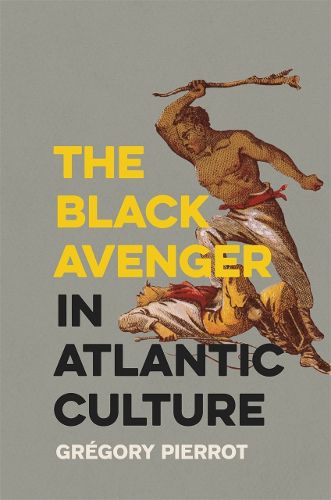Readings Newsletter
Become a Readings Member to make your shopping experience even easier.
Sign in or sign up for free!
You’re not far away from qualifying for FREE standard shipping within Australia
You’ve qualified for FREE standard shipping within Australia
The cart is loading…






With the Ta-Nehisi Coates-authored Black Panther comic book series (2016); recent films Django Unchained (2012) and The Birth of a Nation (2016), Nate Parker’s cinematic imagining of the Nat Turner rebellion; and screen adaptations of Marvel’s Luke Cage (2016) and Black Panther (2018), violent black redeemers have rarely been so present in mainstream Western culture. Yet the black avenger has always been with us: the trope has fired the news and imaginations of the United States and the larger Atlantic World for three centuries.
The black avenger channeled the fresh anxieties about slave uprisings and racial belonging occasioned by the European colonization project in the Americas. Even as he is portrayed as wholly Other, a heathen and a barbarian, his values?honor, loyalty, love?reflect his ties to the West. Yet being racially different, he cannot belong, and his qualities in turn make him an anomaly among black people. The black avenger is thus a liminal figure defining racial borders. Where his body lies, lies the color line. Regularly throughout the modern era and to this day, variations on the trope have contributed to defining race in the Atlantic World and thwarting the constitution of a black polity.
Gregory Pierrot’s The Black Avenger in Atlantic Culture studies this cultural history, examining a multicultural and cross-historical network of print material including fiction, drama, poetry, news, and historical writing as well as visual culture. It tracks the black avenger trope from its inception in the seventeenth century to the U.S. occupation of Haiti in 1915. Pierrot argues that this Western archetype plays an essential role in helping exclusive, hostile understandings of racial belonging become normalized in the collective consciousness of Atlantic nations. His study follows important articulations of the figure and how it has shifted based on historical and cultural contexts.
$9.00 standard shipping within Australia
FREE standard shipping within Australia for orders over $100.00
Express & International shipping calculated at checkout
With the Ta-Nehisi Coates-authored Black Panther comic book series (2016); recent films Django Unchained (2012) and The Birth of a Nation (2016), Nate Parker’s cinematic imagining of the Nat Turner rebellion; and screen adaptations of Marvel’s Luke Cage (2016) and Black Panther (2018), violent black redeemers have rarely been so present in mainstream Western culture. Yet the black avenger has always been with us: the trope has fired the news and imaginations of the United States and the larger Atlantic World for three centuries.
The black avenger channeled the fresh anxieties about slave uprisings and racial belonging occasioned by the European colonization project in the Americas. Even as he is portrayed as wholly Other, a heathen and a barbarian, his values?honor, loyalty, love?reflect his ties to the West. Yet being racially different, he cannot belong, and his qualities in turn make him an anomaly among black people. The black avenger is thus a liminal figure defining racial borders. Where his body lies, lies the color line. Regularly throughout the modern era and to this day, variations on the trope have contributed to defining race in the Atlantic World and thwarting the constitution of a black polity.
Gregory Pierrot’s The Black Avenger in Atlantic Culture studies this cultural history, examining a multicultural and cross-historical network of print material including fiction, drama, poetry, news, and historical writing as well as visual culture. It tracks the black avenger trope from its inception in the seventeenth century to the U.S. occupation of Haiti in 1915. Pierrot argues that this Western archetype plays an essential role in helping exclusive, hostile understandings of racial belonging become normalized in the collective consciousness of Atlantic nations. His study follows important articulations of the figure and how it has shifted based on historical and cultural contexts.